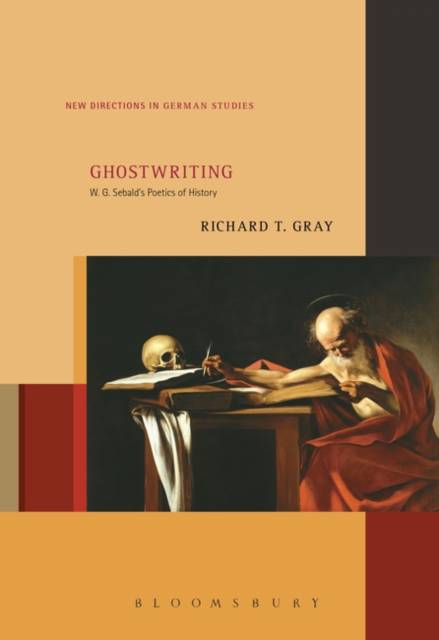
Bedankt voor het vertrouwen het afgelopen jaar! Om jou te bedanken bieden we GRATIS verzending (in België) aan op alles gedurende de hele maand januari.
- Afhalen na 1 uur in een winkel met voorraad
- In januari gratis thuislevering in België
- Ruim aanbod met 7 miljoen producten
Bedankt voor het vertrouwen het afgelopen jaar! Om jou te bedanken bieden we GRATIS verzending (in België) aan op alles gedurende de hele maand januari.
- Afhalen na 1 uur in een winkel met voorraad
- In januari gratis thuislevering in België
- Ruim aanbod met 7 miljoen producten
Zoeken
€ 271,45
+ 542 punten
Uitvoering
Omschrijving
Ghostwriting provides the first comprehensive analysis of the fictional prose narratives of one of contemporary Germany's most recognized authors, the émigré writer W. G. Sebald. Examining Sebald's well-known published texts in the context of largely unknown unpublished works, and informed by documents and information from Sebald's literary estate, this book offers a detailed portrait of his characteristic literary techniques and how they emerged and matured out of the practices and attitudes he represented in his profession as a literary scholar.
The title "Ghostwriting+? signals the convergence in Sebald's works of a set of diverse historical questions, philosophical views, and literary practices. Many historical ghosts haunt Sebald's narratives on the level of story. Moreover, Sebald's narrator plays the role of a ghostwriter in the profound sense that his stories fictionally re-enact the histories of obscure, but once-living individuals whose lives they revitalize, and whose fates are tied up with the most virulent historical conjunctures of the modern world. This study thus seeks to comprehend the constitutive elements of Sebald's "poetics of history, +? his implementation of literary tools for effective historical memorializing.
The title "Ghostwriting+? signals the convergence in Sebald's works of a set of diverse historical questions, philosophical views, and literary practices. Many historical ghosts haunt Sebald's narratives on the level of story. Moreover, Sebald's narrator plays the role of a ghostwriter in the profound sense that his stories fictionally re-enact the histories of obscure, but once-living individuals whose lives they revitalize, and whose fates are tied up with the most virulent historical conjunctures of the modern world. This study thus seeks to comprehend the constitutive elements of Sebald's "poetics of history, +? his implementation of literary tools for effective historical memorializing.
Specificaties
Betrokkenen
- Auteur(s):
- Uitgeverij:
Inhoud
- Aantal bladzijden:
- 464
- Taal:
- Engels
- Reeks:
- Reeksnummer:
- nr. 20
Eigenschappen
- Productcode (EAN):
- 9781501329999
- Verschijningsdatum:
- 16/11/2017
- Uitvoering:
- Hardcover
- Formaat:
- Genaaid
- Afmetingen:
- 145 mm x 218 mm
- Gewicht:
- 716 g

Alleen bij Standaard Boekhandel
+ 542 punten op je klantenkaart van Standaard Boekhandel
Beoordelingen
We publiceren alleen reviews die voldoen aan de voorwaarden voor reviews. Bekijk onze voorwaarden voor reviews.









